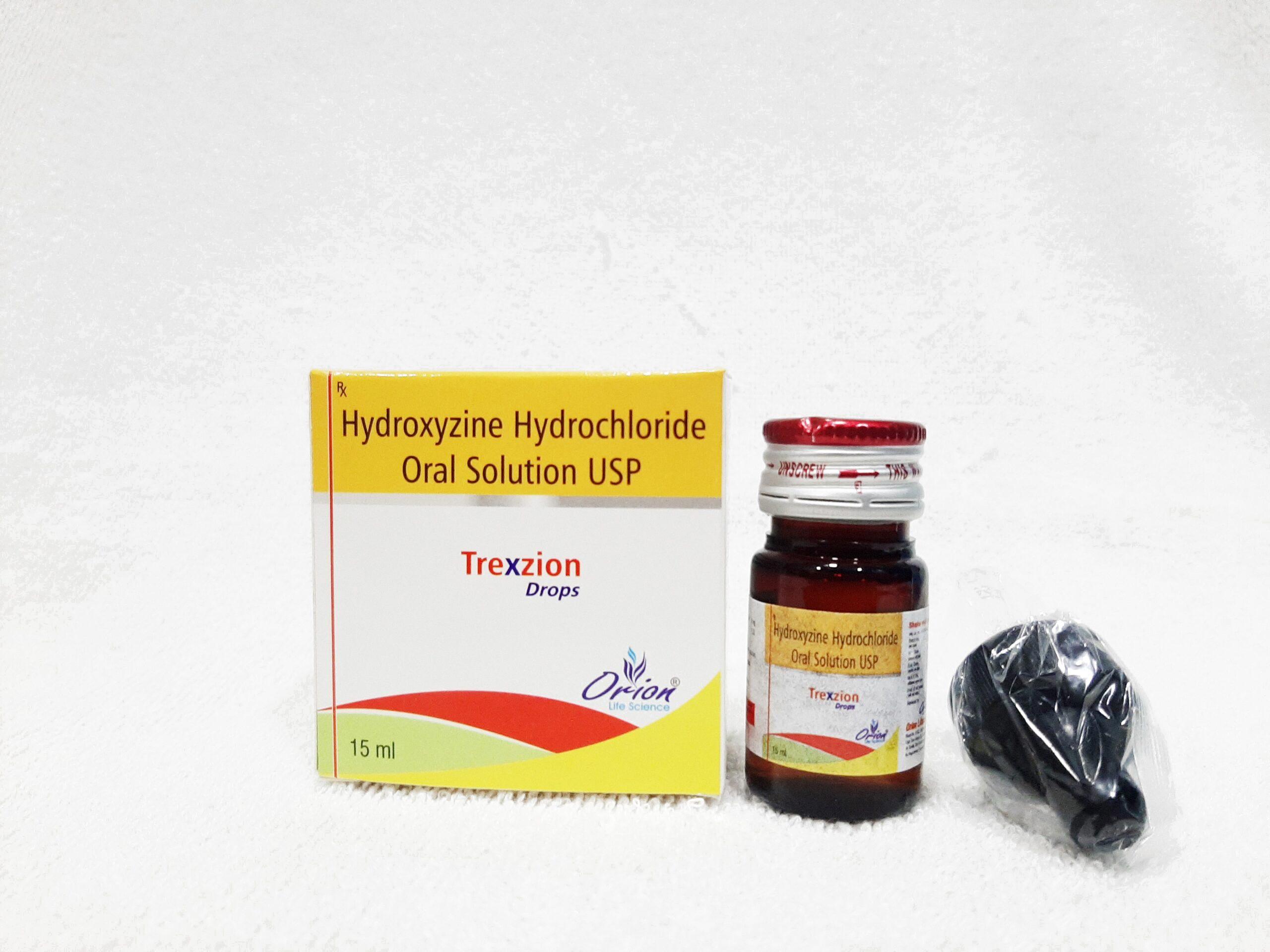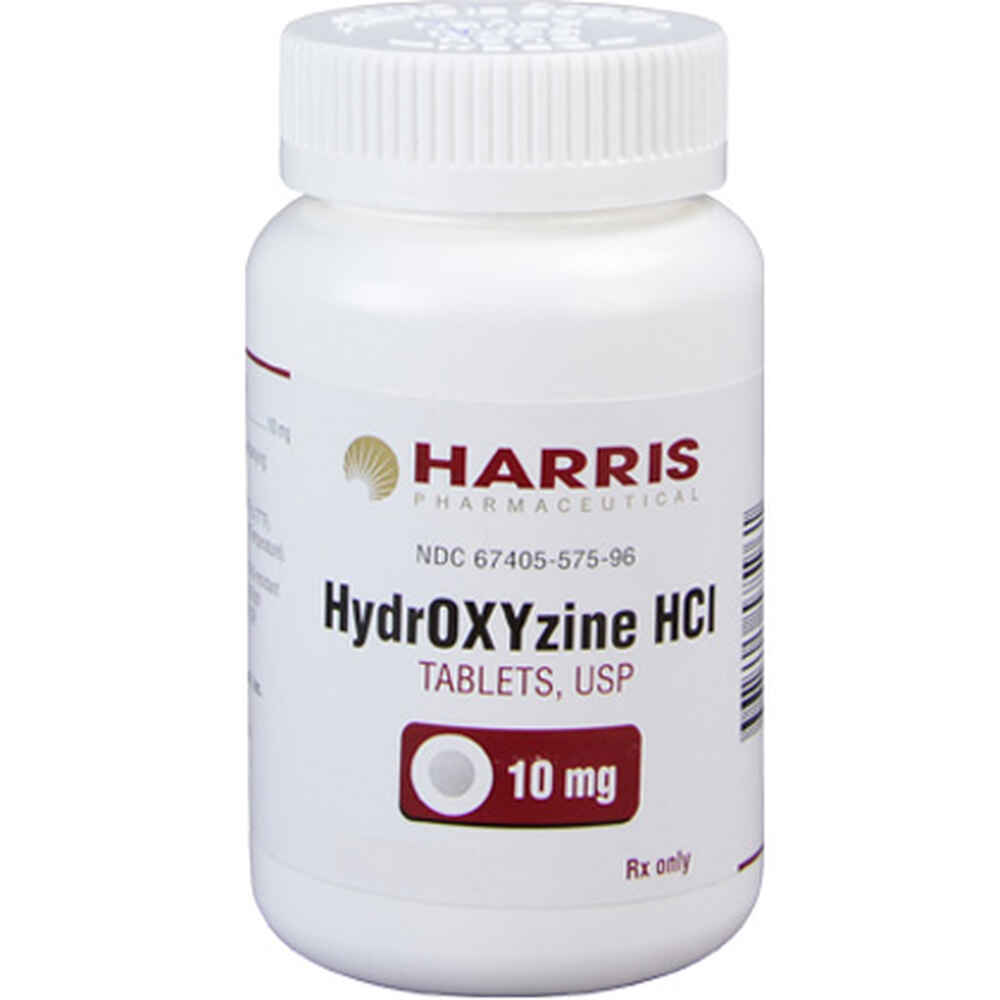Hydroxyzine is a medication that is commonly prescribed to treat anxiety and tension. It works by blocking the effects of histamine in the body, which helps to reduce symptoms such as itching, hives, and rashes. Hydroxyzine has a relatively long half-life of about 14 hours, which means it takes about 70 hours for the drug to completely leave the body.
While hydroxyzine can be helpful for treating anxiety and tension, it is important to be aware of its potential side effects. One common side effect of hydroxyzine is drowsiness or daytime sleepiness. This effect can be particularly concerning for individuals who need to be alert and focused throughout the day. It is important to speak with your healthcare provider if you experience persistent drowsiness or other side effects while taking hydroxyzine.
When taking hydroxyzine for anxiety and tension, the recommended dosages are different for adults and children. Adults may be prescribed 50 to 100 mg of hydroxyzine four times per day, while children over the age of six may be prescribed 50 to 100 mg per day in divided doses. Children undr the age of six may be prescribed 50 mg per day in divided doses.
Hydroxyzine is a medication that can be effective for treating anxiety and tension. However, its long half-life and potential side effects should be taken into consideration when deciding whether to use this medication. It is important to speak with a healthcare provider before starting any new medication and to follow the recommended dosages and guidelines for use.
The Duration of Hydroxyzine Wearing Off
Hydroxyzine is an antihistamine medication used to treat anxiety, itching, and other allergic reactions. It works by blocking the effects of histamine in the body, which can cause drowsiness and sedation. The amount of time it takes for hydroxyzine to wear off varies depending on several factors, including the dose, individual metabolism, and the frequency of use.
Hydroxyzine’s half-life is approximately 14 hours, which means that it takes about 14 hours for your body to eliminate half of a dose of hydroxyzine. After five half-lives, the medication should be almost entirely eliminated from your system. Therefore, hydroxyzine should be completely out of your system afer approximately 70 hours or three days.
It is important to note that the effects of hydroxyzine can vary depending on the individual, and some people may experience lingering effects even after the medication has been eliminated from their system. Additionally, taking higher doses or using hydroxyzine for a prolonged period can increase the amount of time it takes for the medication to wear off.
If you are experiencing any side effects or have concerns about the length of time it takes for hydroxyzine to wear off, it is important to speak with your healthcare provider. They can provide guidance on the appropriate dosage and frequency of use to minimize any potential side effects and ensure the medication is working effectively.

Source: orionlifes.com
The Effects of Hydroxyzine on Sleep Patterns
Hydroxyzine is a medication used to treat anxiety and certain types of allergic reactions. One of the common side effects of hydroxyzine is drowsiness or sedation. This means that taking hydroxyzine can make you feel tired or sleepy, especially if you take it at night before going to bed.
It is important to note that the sedative effect of hydroxyzine can last into the next day, whch means that you may still feel tired or sluggish after waking up in the morning. This can be especially problematic if you need to be alert and focused for work or other activities during the day.
However, it is worth noting that not everyone experiences drowsiness or fatigue as a side effect of hydroxyzine. Some people may be able to take the medication without feeling any negative effects on their energy levels or ability to function.
If you are concerned about feeling tired or drowsy after taking hydroxyzine, it is important to talk to your doctor. They may be able to adjust your dosage or recommend alternative medications that do not have sedative effects.
Hydroxyzine can make you feel tired or sleepy, and this effect may last into the next day. However, not everyone experiences this side effect, and it is important to talk to your doctor if you are concerned about its impact on your daily functioning.
The Effects of Hydroxyzine Wearing Off
Hydroxyzine is an antihistamine medication that is commonly prescribed to treat anxiety, itching, and allergy symptoms. One of the concerns with this medication is that it has a long half-life of around 20 hours, which means that it takes a long time for the medication to be completely eliminated from the body.
When hydroxyzine wears off, the effects of the medication will gradually decrease over time. This means that you may start to feel less drowsy and sedated, and any anxiety or itching symptoms that you were experiencing may return. In some cases, people may experience a rebound effect, where their symptoms worsen temporarily after the medication wears off.
It’s important to note that the duration of the effects of hydroxyzine can vary depending on several factors, including the dosage, how long you have been taking the medication, and your individual metabolism. Some people may find that the effects of the medication wear off more quickly, while othes may experience lingering effects.
If you are concerned about the effects of hydroxyzine wearing off, it’s important to talk to your doctor. They can provide guidance on how to manage your symptoms and may recommend adjusting your dosage or switching to a different medication if necessary. It’s also important to follow your doctor’s instructions for taking the medication, including when and how often to take it, to ensure that you are getting the most benefit from the medication while minimizing any potential side effects.
Determining the Appropriate Dosage of Hydroxyzine for Anxiety
Hydroxyzine is a medication that can be prescribed for the management of anxiety and tension. The appropriate dosage of hydroxyzine can vary depending on the age of the patient.
For adults, the recommended dosage is typically between 50 to 100 milligrams (mg) taken 4 times a day. This dosage can be adjusted by a healthcare provider based on the severity of the anxiety symptoms and the individual’s response to the medication.
Children who are 6 years of age or older may be prescribed a dosage of 50 to 100 mg per day, which can be divided into multiple doses throughout the day. Children who are younger than 6 years of age may be prescribed a daily dosage of 50 mg, which can also be divided into multiple doses throughout the day.
It is important to follow the dosage instructions provded by a healthcare provider and not to exceed the recommended dosage. Hydroxyzine can cause drowsiness, so patients should avoid driving or operating heavy machinery while taking this medication. Patients should also avoid consuming alcohol while taking hydroxyzine, as it can increase the risk of side effects.
The appropriate dosage of hydroxyzine for anxiety can vary based on age, with adults typically taking 50 to 100 mg four times a day, and children taking 50 to 100 mg per day depending on their age. It is important to follow dosage instructions carefully and avoid activities that require alertness until the individual’s response to the medication is known.

Conclusion
Hydroxyzine is a medication commonly used to treat anxiety and tension. Its sedative effects can be both beneficial and problematic, depending on the individual’s response to the drug. The half-life of Hydroxyzine is relatively long, which means that its effects can persist for a longer period of time than other medications. While the drug can be effective in treating anxiety and tension, it is important to be aware of its potential side effects, such as daytime sleepiness and fatigue. As with any medication, it is essential to consult with a healthcare professional before starting or discontinuing use of Hydroxyzine.
